Why trail runners need to try cross country skiing
Find out why trail runners need to try cross country skiing this winter and turn your cold season into an epic adventure
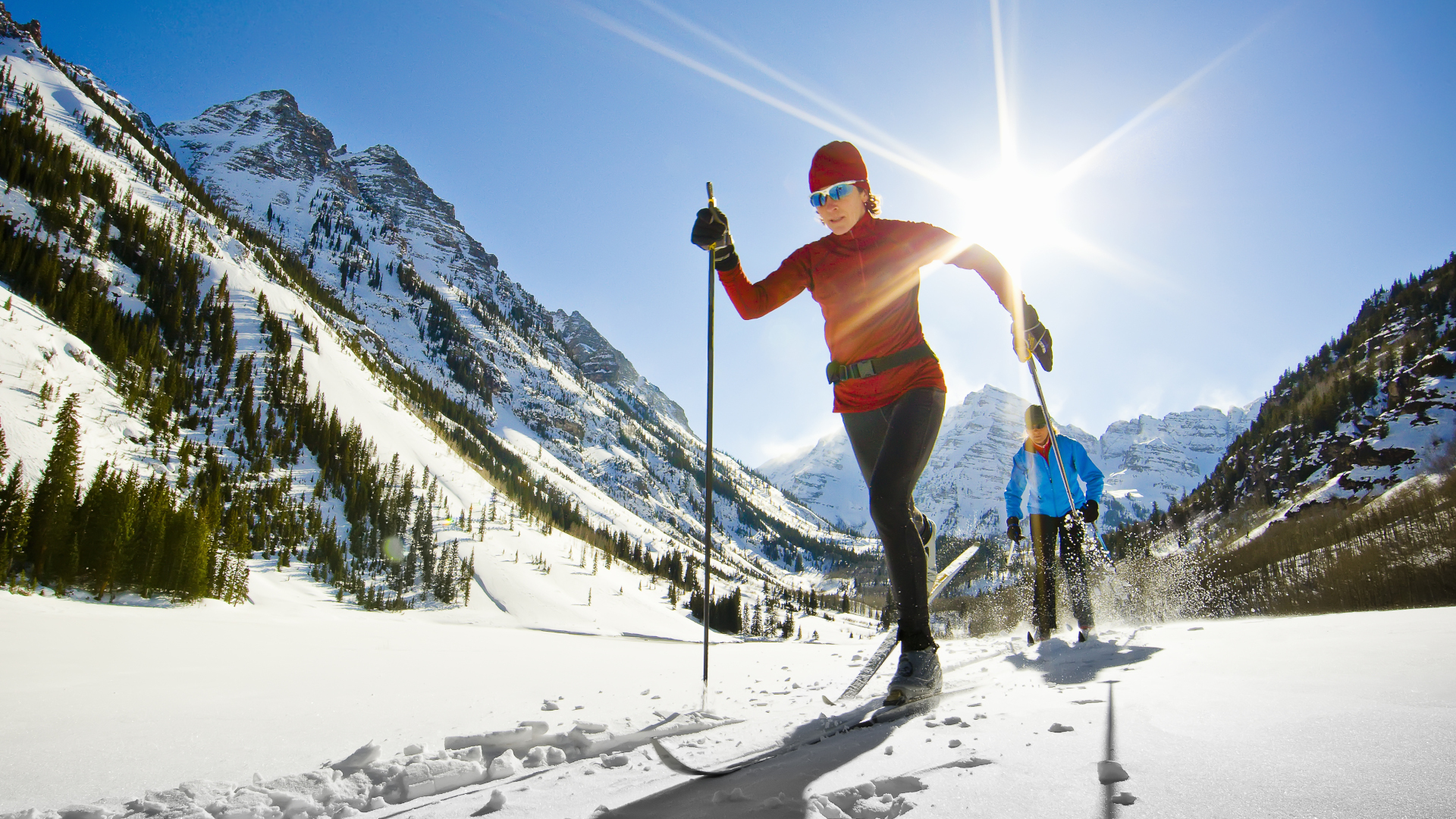
It’s perhaps no great secret that lots of skiers become trail runners in their off season, continuing to enjoy the backcountry at a faster pace until the snow returns. And, if you’re a trail runner looking for a replacement activity while your trails are covered in snow, you might want to try cross country skiing.
In cross country skiing, also known as Nordic skiing, you wear light, narrow skis and use your own locomotion to travel across terrain that may be flat or hilly using movements like striding or skating, often using your poles to help propel you forward. On its own, it’s considered the best workout you can possibly do with tons of great benefits, but it’s especially effective as cross-training or off-season training for trail runners. If your best trail running shoes are looking a little dejected while the snow falls, read on for why trail runners need to try cross country skiing this winter and turn your cold season into an epic adventure.
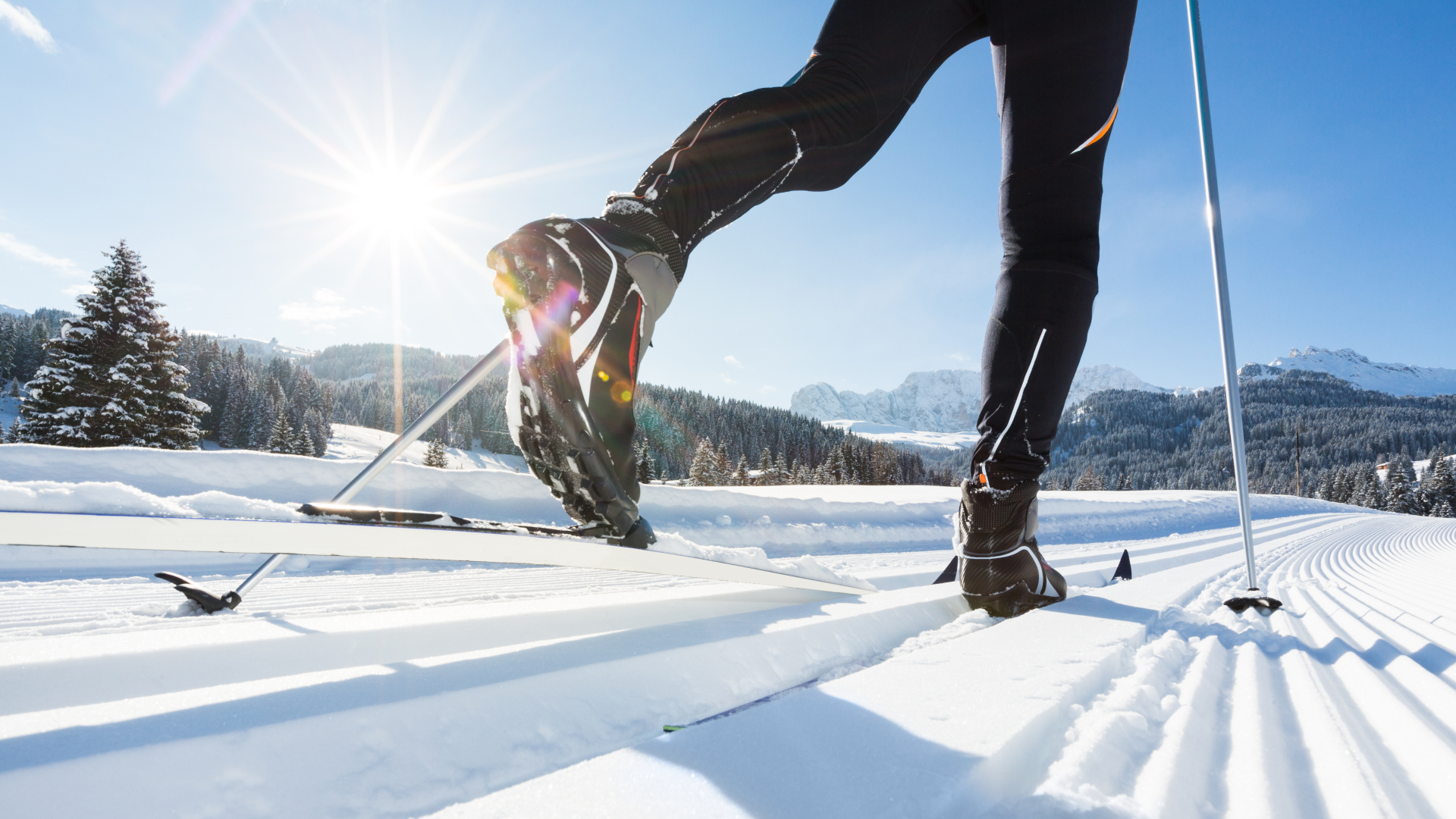
1. It’s low impact
Though cross country skiing mimics the movements of running in both your lower and upper body, it’s low impact on your joints because you glide, rather than lift your leg with each step. This offers you a great opportunity to strengthen the muscles and movement patterns involved in running while giving your ankles, knees, hips and spine a welcome break from the demands of running.
2. It improves your aerobic endurance
Cross country skiing shares similar movement patterns to running, however it will actually improve your cardiovascular fitness more than running. In fact, according to Norwegian American, when it comes to VO2 max, cross country skiers have the highest cardiovascular fitness of all Olympic athletes. So, a winter spent nordic skiing isn’t just a way to maintain your fitness until the snow melts; it might even make you a stronger runner in the long run.
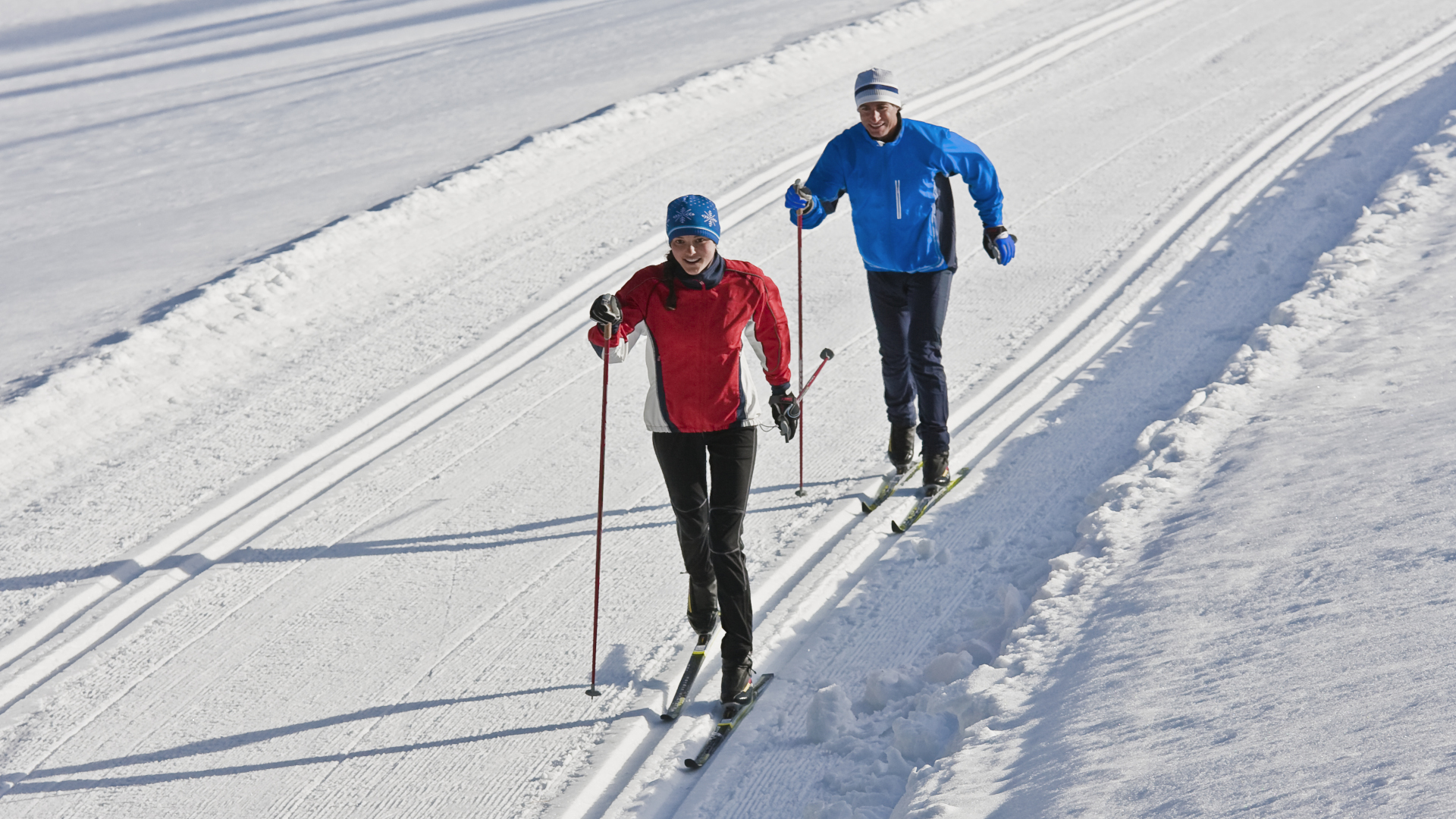
3. It keeps you outdoors
All exercise done in the right way and an appropriate amount is good for you, but exercising outdoors, known as green exercise, has the most benefit of all. If you live somewhere very snowy, your outdoor running regimen might be seriously hampered come winter and you probably know that a treadmill workout isn’t quite the same for your body or your mind. Cross country skiing keeps you out in the fresh air, surrounded by nature, year-round, which is great for your mental health.
4. It great for improving balance
Because you’re travelling on a slick surface wearing skinny planks on your feet, all cross country skiing requires you to develop better balance, and especially so if you’re skate skiing. Trail runners really rely on a good sense of balance for moving quickly over steep, uneven and rough terrain, so consider skiing your balance training.
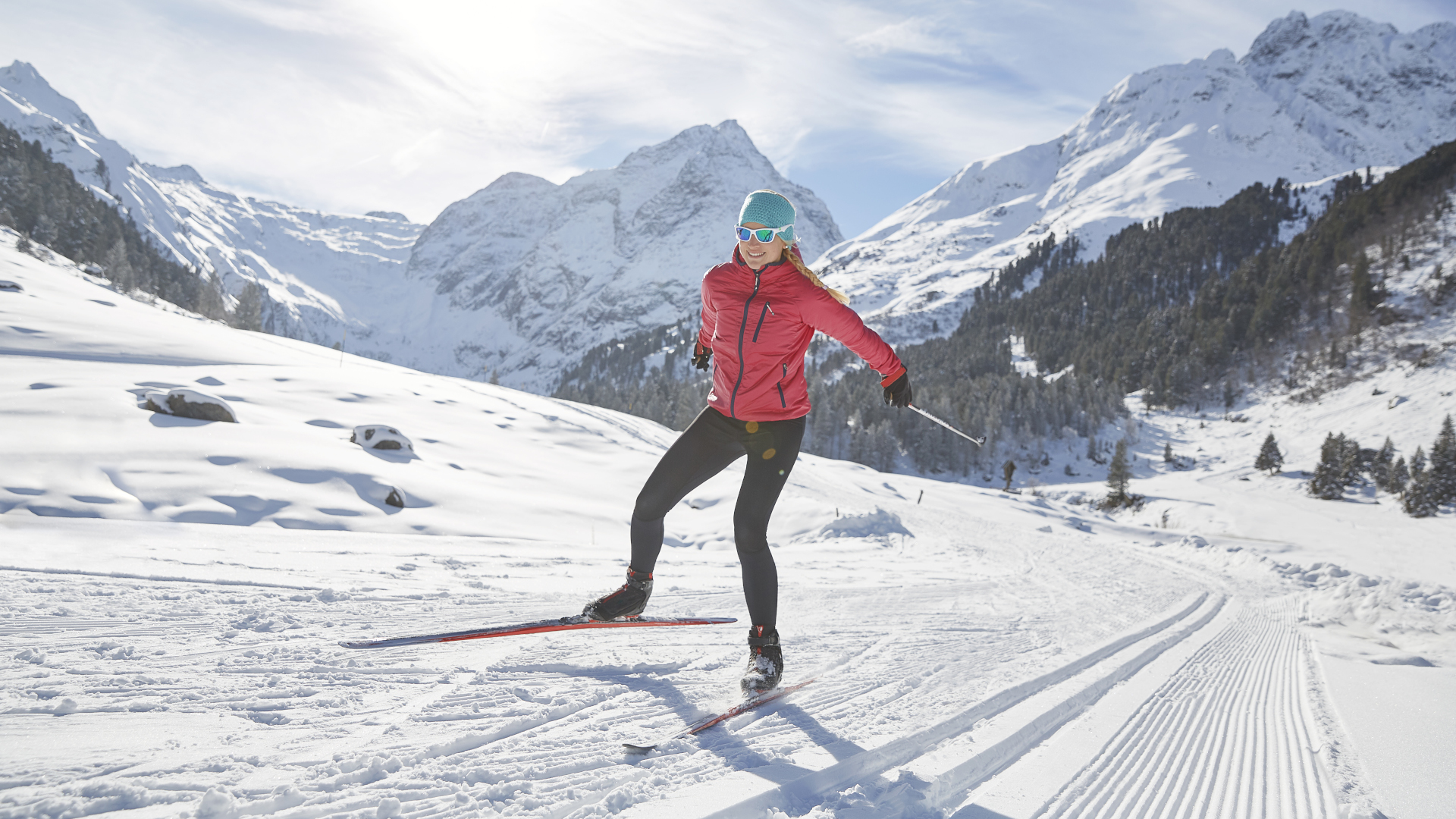
5. It helps you recruit your glutes
Many runners are prone to overdeveloped quads and underdeveloped glutes, which can lead to chronic pain, weakness and underperformance, according to the International Journal of Sports Physical Therapy. However, you won’t get very far down a snowy track on cross country skis if you don’t recruit your glutes. In addition to working your legs, arms, chest, back and abs, cross country skiing is a serious glute burner, so when you return to running, you might find yourself moving with better mechanics and less pain.
All the latest inspiration, tips and guides to help you plan your next Advnture!
6. It builds mental fortitude
Not to say that trail running isn’t tough, but cross country skiing is really, really tough if you want to put in some distance. You’ve got cold weather and slippery conditions to contend with while your heart, lungs and legs will be getting a serious run through the ringer. Cross country skiing can be great brain training to help you meet the demands of difficult trail running with a calm and focused mind.
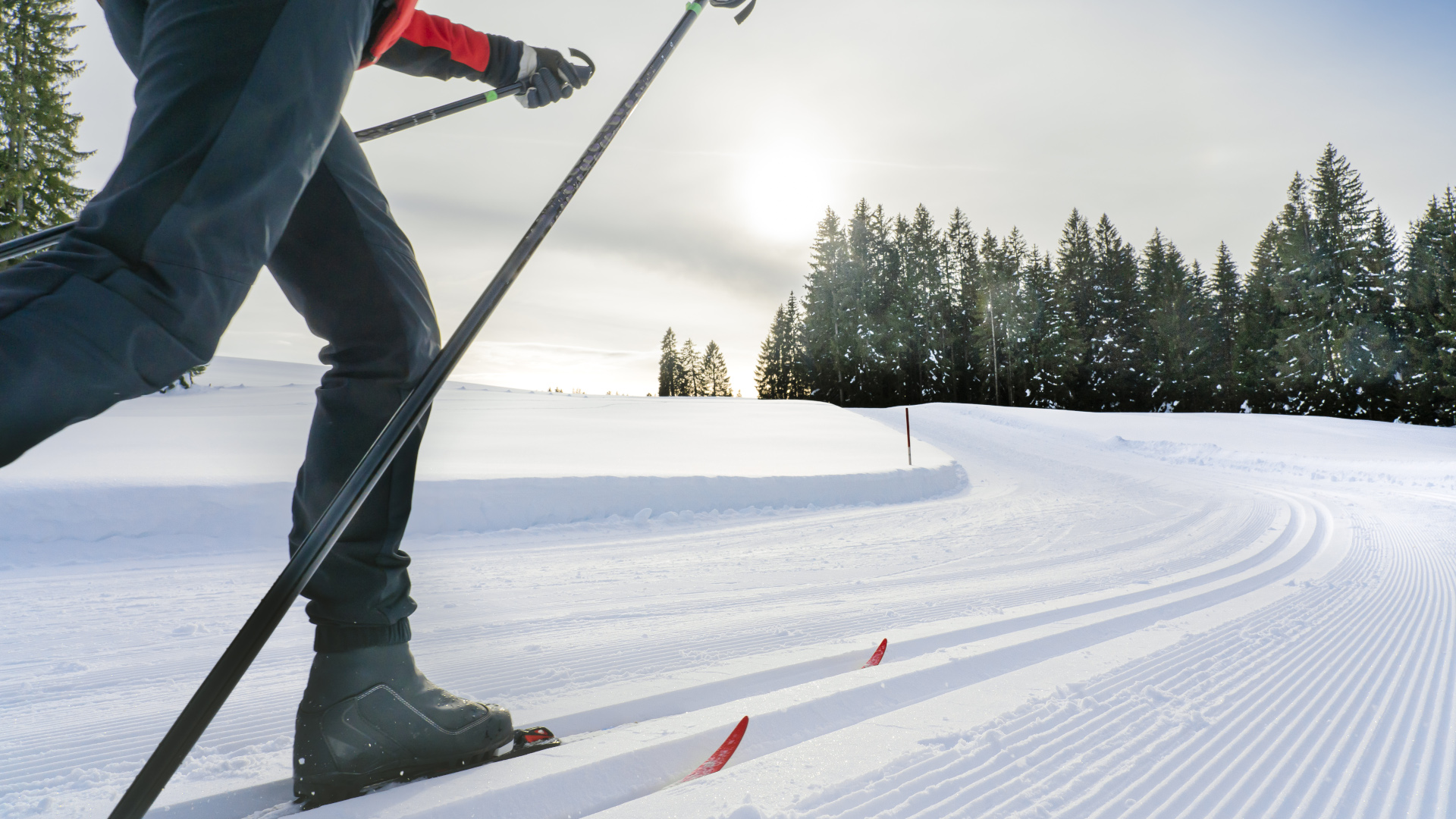
In conclusion, a winter spent on cross country skis can make you a stronger runner come the spring, and it’s not a particularly expensive sport to get into, compared to downhill skiing. However, please be aware that, even though you’ll be very fit after a few months of skiing, you’ll need to ease back into running to give your ankles, knees, hips and spine time to re-adapt to the impact. In the meantime, glide on!
Julia Clarke is a staff writer for Advnture.com and the author of the book Restorative Yoga for Beginners. She loves to explore mountains on foot, bike, skis and belay and then recover on the the yoga mat. Julia graduated with a degree in journalism in 2004 and spent eight years working as a radio presenter in Kansas City, Vermont, Boston and New York City before discovering the joys of the Rocky Mountains. She then detoured west to Colorado and enjoyed 11 years teaching yoga in Vail before returning to her hometown of Glasgow, Scotland in 2020 to focus on family and writing.

